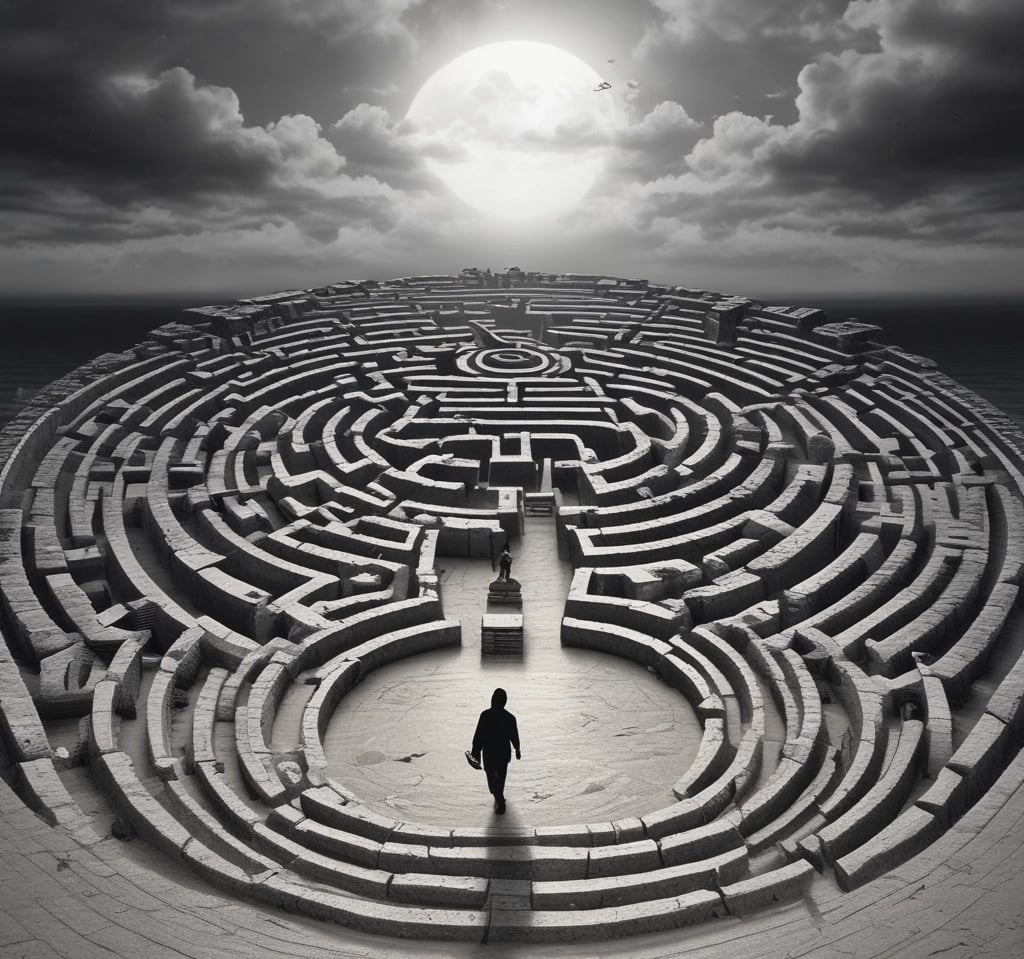What if Your Suffering Isn't Random?
A Different Lens for the Self-Assured Skeptic
SPIRITUAL AWARENESS
Nigel John Farmer
7/13/20253 min read


Let's be honest. When life throws its inevitable curveballs – the unexpected losses, the baffling setbacks, the moments that just feel relentlessly unfair – it's easy to retreat into a fortress of cynicism. From that vantage point, suffering often appears as nothing more than a cruel joke, a pointless act of cosmic indifference. You might believe that pain is simply a glitch in the system, a meaningless by-product of a chaotic existence. And why wouldn't you? It's a common, understandable response to the harsh realities we face.
But what if there was another way to see it? What if the very struggles that fuel your scepticism aren't random acts of misfortune, but something far more profound?
Many ancient and contemporary spiritual movements include beliefs that invite us to consider a radically different perspective: the idea that souls consciously choose their life circumstances. This isn't about blaming the victim or dismissing genuine hardship. Instead, it’s about embracing the profound notion that even our most significant challenges, our most complex relationships, and yes, even our most painful experiences, are part of a pre-birth plan for spiritual growth.
In this expansive view, Earth isn't just a place we inhabit; it's often metaphorically referred to as a "school" or "training ground" for souls. The curriculum? To evolve consciousness, to understand the intricate dance of duality – light and shadow, joy and sorrow, love and its seeming opposite. Through this lens, suffering isn't viewed as a punishment for past misdeeds or a sign of being overlooked by the universe. Rather, it becomes an opportunity for immense growth, a catalyst for overcoming challenges, and a potent pathway to deeper wisdom and empathy.
Now, you might scoff. "A pre-birth plan? Sounds like spiritual bypassing to me." And that's perfectly understandable. It’s a concept that asks you to stretch your mind beyond conventional logic. But consider the alternative: if life's hardships are truly meaningless, what does that leave you with besides resignation? This alternative perspective, however challenging it may seem, offers a powerful sense of agency. It suggests that even in your darkest moments, you are not merely a victim of circumstance, but an active participant in your own profound journey of evolution.
So, the next time you find yourself grappling with a difficult situation, or observing what appears to be senseless pain in the world, perhaps just for a moment, allow yourself to pause. Could there be an intricate, purposeful design woven into the fabric of even the most challenging experiences? Could your suffering, and indeed all suffering, be a powerful, albeit often painful, curriculum designed for growth? It’s a question worth pondering, even for the most steadfast sceptic among us.
Further Reading and Exploration
The concept of suffering as a path to growth, or the idea of a soul's pre-existence and journey, resonates across many traditions, though interpreted in diverse ways. If this article has piqued your curiosity, here are some broad areas to explore:
Karma and Reincarnation (Hinduism, Buddhism, Jainism, Sikhism): These Indian religions deeply explore the cycle of cause and effect (karma) and rebirth, where current life circumstances are often seen as a result of past actions, and a chance for spiritual progression.
The Problem of Evil/Suffering (Abrahamic Religions: Judaism, Christianity, Islam): While not typically embracing reincarnation, these faiths offer rich theological perspectives on why suffering exists, often viewing it as a test, a means of purification, or an opportunity for spiritual refinement and drawing closer to the Divine.
Philosophical Concepts of the Soul and Purpose (Ancient Greek Philosophy, Esoteric Traditions): Thinkers like Plato pondered the pre-existence of the soul and its journey of learning. Various esoteric and mystical traditions, both ancient and modern, delve into similar ideas of life as a school for the soul.
The "Soul's Journey" in New Age Spirituality: Contemporary New Age thought, drawing from many of the above, often consolidates these ideas into narratives of the soul consciously choosing its life lessons for accelerated evolution.
Nigel John Farmer

© 2023~2024~2025~2026 MeditatingAstronaut.com - All Rights Reserved Worldwide
website by Meditating Astronaut Publishing
